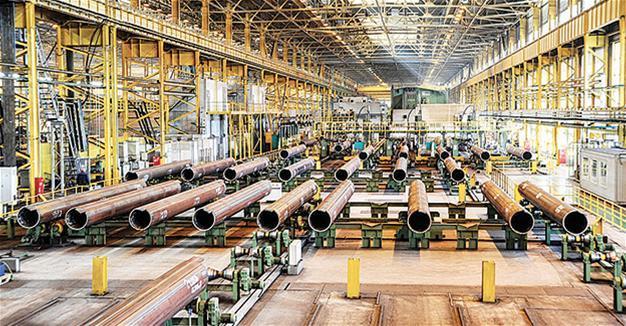Turkey’s energy sector still appealing despite setbacks: Energy Council head
ANKARA - Anadolu Agency

Foreign investment in Turkey remains strong in spite of many challenges including terrorist attacks, thanks to the normalization of bilateral relations with Russia and Israel and the lifting of sanctions on Iran, the president of the Energy Council of Foreign Investors said on Jan. 2.
Speaking to state-run Anadolu Agency, Mario Diel struck an optimistic tone on energy developments and future prospects in Turkey.
Diel hailed the potential in Turkey’s energy sector as one of the most attractive in the region and in Europe, stressing that foreign investors will continue to invest in the country despite the negative incidents that Turkey has experienced over the past year. Recent global developments including the Brexit referendum in the U.K., the U.S. presidential elections results, and the weak Turkish Lira have also impacted Turkey’s economy and by extension its energy sector, he added.
“We could witness disruption in the electricity market as power plant owners struggle to pay their debts, since most of them are financed either through U.S. dollars or on a euro basis,” Diel said.
However, he noted that these developments are positively offset by the normalization of relations with Russia and Israel, which he said will not only create new business and investment opportunities but also offer sustainable energy sources for Turkey and the region.
Speaking on behalf of the Energy Council in Turkey, Diel said council members are not only satisfied with their investments in Turkey but have decided to make further investments.
“This year we maintained our presence in Turkey and increased our trust in the future,” stated Sani Tiryaki, the head of Danske Commodities Turkey. “Other members like EWE Holding Turkey have even announced additional future investments.”
State support for energy sector
Diel also welcomed Energy and Natural Resources Minister Berat Albayrak’s moves to support the energy sector and investors in order to attract investment and a positive outlook.
“The government’s guaranteed tariffs in the renewable sector are still much higher than most European countries. New investments are highly welcomed and supported by several governmental incentives and less bureaucratic hurdles,” he said.
Diel also stated that Turkish banks are still showing strong commitment to the energy sector and supporting investments.
“Foreign investors are still interested in the Turkish energy market due its growth potential and the importance of Turkey in the region,” he said.
Mega projects like the Trans Anatolian Natural Gas Pipeline (TANAP), the South Gas Corridor and the Turkish Stream project, which are already under construction or in the development phase, will strengthen Turkey as an important energy corridor connecting important energy-producing countries with Europe, Diel said.
“Recent investments, such as Turkey’s first floating storage and re-gasification unit [FSRU] in Izmir and the planned increase in natural gas storage, will increase Turkey’s competitive power in the natural gas market,” he added.
“Iran will most likely be a bigger player especially in the gas market, where Turkey will again be not only one of the most important consumers but also as a transfer country to the West,” Diel stated.
The newly constructed railway connection between Baku, Tbilisi and Kars will boost commodity trading all the way to China, he also stated.
“Nevertheless, Turkey is the biggest market in the region with a still growing economy and is, despite all the challenges, a young, dynamic and demanding population located at one of the most important geopolitical regions,” he added.
“We will contribute our know-how and experience in the market, not only for individual commercial interests, but also for a better future for the Turkish people,” Diel said.
 Foreign investment in Turkey remains strong in spite of many challenges including terrorist attacks, thanks to the normalization of bilateral relations with Russia and Israel and the lifting of sanctions on Iran, the president of the Energy Council of Foreign Investors said on Jan. 2.
Foreign investment in Turkey remains strong in spite of many challenges including terrorist attacks, thanks to the normalization of bilateral relations with Russia and Israel and the lifting of sanctions on Iran, the president of the Energy Council of Foreign Investors said on Jan. 2.